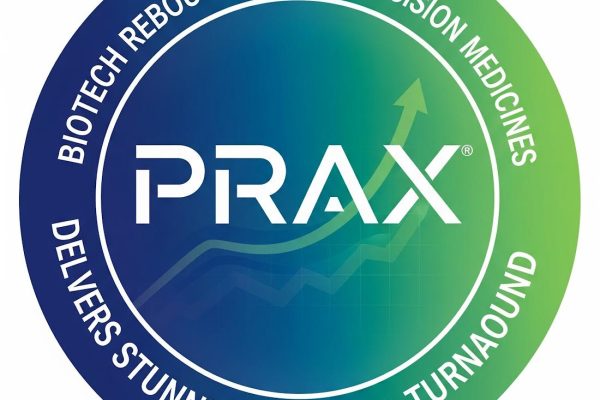GameStop Rips Higher As Stocks Broadly End Mixed Monday – $ADT $AMC $GME $INDP $LTRN $XBI Rise!

Happy Monday!
I hope that you began the week on fire.
As for the stock market, Monday’s session proved to be a bot of a mixed affair across the stock indices in front of this week’s (Wednesday) Fed interest rate decision, however the talk of the day seemed to centered around the world infamous meme stock, GameStop (GME, $28, +21%), which caught an outrageously strong bid and shot 75% higher during intraday trading. The move came after a Reddit post from Keith Gill or “Roaring Kitty” surfaced where he confirmed that he had bought almost $116M worth of the GME stock. Another infamous meme stock AMC Entertainment (AMC) also closed up 11%. Not to be too outshined AI marvel stock and firm NVIDIA (NVDA) closed at $1,150, +4.9% after previewing its next-gen Rubin AI chip amongst other new offerings.
Today’s macroeconomic schedule provided the Final May S&P Global US Manufacturing PMI report that came higher at 51.3 & the May ISM Manufacturing Index report that clocked lower than expected at 48.7% showing significant contraction. The April Construction Spending report came in lower than expected at -.1%.
The yield curve pulled back as the 2-yr note yield closed down 7bps at 4.82% & the 10-yr note yield moved down 11bps at 4.40% as growth concerns surfaced.
Oil prices moved lower again to close at $74.06, -.22%, the US Dollar Index closed at $104.09, – .05%, while the CBOE Volatility Index (^VIX) closed at $13.11, +1.47% and hit a high of $14.30 during intraday trading.
At the end of today’s session the Dow 30 closed at 38,571.03 (-.30%).
The S&P 500 closed at 5,283.40 (+.11%).
The Nasdaq closed at 16,828.67 (+.56%) while Cathie Wood’s ARK Innovation ETF (ARKK) closed at $42.98, +1.25%. The market leading mega cap Magnificent Seven closed as follows: Alphabet (GOOG) closed at $174.42, +.26%, Amazon (AMZN) closing at $178.34, +1.08%, Apple (AAPL) closing at $194.03, +.93%, Meta Platforms (META) closing at $477.49, +2.28%, Microsoft (MSFT) closing at $413.52, -.39%, NVIDIA (NVDA) closing at $1,150, +4.90%, & Tesla (TSLA) closed at $176.29, -1.01%.
The small caps on the Russell 2000 closed at 2,059.68 (-.50%).
Biotech stocks on the SPDR S&P Biotech ETF (XBI) closed at $91.42, +2.57% and now up 2.39% YTD. The 52-wk range is $63.80-$103.52. The iShares Biotechnology ETF (IBB) closed at $135.50, +1.21%. The 52-range is $111.83 – $141.16. The iShares U.S. Healthcare ETF (IYH) closed at $60.60,+.61%.
The SPDR S&P Regional Banking ETF (KRE) closed at $48.00, -1.74% and the SPDR S&P Bank ETF (KBE) closed at $45.69, -1.17%.
Around the crypto and precious metals’ universe, Bitcoin (BTC) traded to $69,217.91, +1.36%. Gold prices closed at $2,350, +$20/oz & Silver prices closed at $30.61, +$.19/oz.
VP WATCHLIST UPDATES
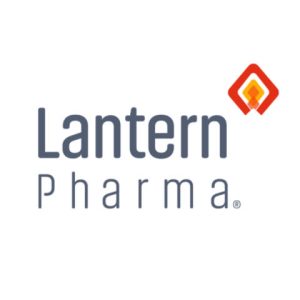
Shares of Lantern (LTRN), an artificial intelligence (“AI”) company developing targeted and transformative cancer therapies using its proprietary RADR® AI and machine learning (“ML”) platform with multiple clinical stage drug program, closed at $6.25, +2.97% and is up +46.03% YTD.
- Active clinical trials across three AI-guided drug candidates with initial data and clinical readouts for LP-184 on-track for the second half of 2024.
- Obtained regulatory allowance to begin Phase 2 Harmonic™ clinical trial enrollment in Japan and Taiwan where approximately 30-35+% of all lung cancer cases occur in never-smokers with NSCLC; Harmonic™ continues patient enrollment in the US.
- Phase 1 clinical trials for both synthetic lethal drug-candidates, LP-184 and LP-284, continue to advance with no dose-limiting toxicities observed in any of the patient cohorts enrolled and dosed to date.
- The combined annual global sales market potential for LP-184 and LP-284 across multiple cancer indications is estimated to be over $12 billion USD.
- Starlight Therapeutics, a wholly owned subsidiary of Lantern Pharma focused on CNS and brain cancers with STAR-001, advanced with the filing of a clinical trial protocol for the Phase 1B dose optimization and expansion cohort in recurrent IDH wild-type high grade gliomas.
- Advanced AI-powered module for streamlining and guiding differentiated ADC development, which will be instrumental in the next-generation of drug candidates for Lantern Pharma and its collaborators.
- Established an AI driven collaboration with Oregon Therapeutics where the RADR® platform will be leveraged to sharpen, expand and derisk future clinical development strategies for a novel, first-in-class inhibitor of cancer metabolism.
- Approximately $38.4 million in cash, cash equivalents, and marketable securities as of March 31, 2024.
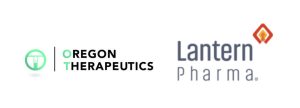
On May 6, Lantern announced a strategic AI-driven collaboration with French biotechnology company, Oregon Therapeutics to optimize the development of its first-in-class protein disulfide isomerase (PDI)(1) inhibitor drug candidate XCE853 in novel and targeted cancer indications. Lantern will be leveraging its proprietary RADR® AI platform to uncover biomarkers and efficacy-associated signatures of XCE853 across solid tumors that can aid in precision development. Collaborative efforts are expected to identify biomarker signatures that can be used to stratify tumors most responsive to XCE853 and guide potential future clinical development and patient selection. Oregon Therapeutics is developing XCE853 in various cancer indications, including drug-resistant ovarian and pancreatic cancer, certain hematological cancers and several pediatric cancers including CNS cancers. Lantern highlighted the following:
- XCE853 is Oregon Therapeutic’s first-in-class, and potentially best-in-class PDI inhibitor, exhibiting potent preclinical efficacy across multiple solid and hematological cancers, and is ready to advance to Investigational New Drug (IND)-enabling development.
- The AI-enabled collaboration aims to refine and expand the positioning of XCE853, a novel protein disulfide isomerase (PDI) inhibitor, in new and targeted oncology indications, including for drug-resistant tumors.
- The collaboration is leveraging RADR®’s AI-based capabilities, including 200+ machine learning (ML) algorithms and foundational models for oncology drug development to uncover biomarkers and molecular correlates of efficacy and define potential combination regimens to sharpen XCE853’s drug development strategy.
- Lantern Pharma is receiving equal IP co-ownership and drug development rights in newly discovered biomarkers, novel indications, and use for new pharmacological strategies for XCE853.

Panna Sharma is the President, CEO, and Board Member of Lantern Pharma Inc.
“Drug development teams have found significant data and modeling challenges in regard to tackling the complexities associated with PDI inhibitors given the challenges with creating meaningful models, and accumulating and deciphering the data. Our AI platform, RADR®, can increase the confidence, insights, and comfort levels in developing data-driven development paths by modeling highly complex scenarios at a scale that only has become possible recently. It’s an ideal approach for Oregon Therapeutics, which has executed a series of highly targeted in vivo and in vitro experiments and is poised to make incredibly important and patient-centric decisions about the clinical future of the molecule. That’s where RADR®can play a highly essential and market defining role,” Panna Sharma, CEO and President of Lantern Pharma.
On April 22, Lantern announced that – the company has received regulatory approval to expand its Harmonic™ trial, a Phase 2 clinical study evaluating LP-300 in non-small cell lung cancer (NSCLC) in never-smokers in both Japan and Taiwan. Approximately one third of all lung cancer patients in East Asia are never-smokers and the proportion of lung cancer in never smokers (LCINS) has been increasing gradually over time, according to a publication in Translational Lung Cancer Research (1). The approval to proceed with the Phase 2 clinical trials in Japan and Taiwan are expected to accelerate the collection of patient and response data needed for the next-stage of evaluation and development of LP-300, a therapeutic for the treatment of relapsed and inoperable primary adenocarcinoma of the lung given in combination with chemotherapy Additionally, it may also bring a needed therapeutic option for LCINS diagnosed patients in Japan and Taiwan, where one-third of all lung cancer diagnoses are made among those who have never smoked. Finally, Lantern believes that this improves the positioning for drug-candidate LP-300 to develop collaborative and co-development partnerships with global biopharma companies with a primary focus in serving the Asian markets. LCINS are histologically, mutationally, and epidemiologically distinct from smoking-related lung cancers and occur almost exclusively as adenocarcinomas and most commonly in women and individuals of Asian ancestry.(2) LCINS are highly enriched for alterations in the tyrosine kinase (TK) genes, have low tumor mutation burden (TMB) and low rates of PD-L1 expression.(2) Many of these factors may provide clarity on why LP-300 seems to have a distinct mechanism of action and anti-cancer activity in tumors among LCINS patients. Lantern believes that this unique mechanism of action and historically observed anti-tumor activity may ultimately prove to be a useful option for this growing class of patients globally.
On March 5, Lantern announced a series of important milestones related to the development, size, and advancement of RADR® — its proprietary AI platform focused on transforming the cost, pace, and timeline of oncology drug development. Lantern highlighted the following:
- The rapid growth of Lantern Pharma’s AI platform could lead to accelerated development of better treatments, greater precision in clinical development, and improved combination regimens with the potential for longer and more durable patient responses.
- Lantern’s RADR® platform recently surpassed 60 billion data points and is planned to exceed 100 billion data points during 2024 and has been crucial in the expansion of the indications for drug candidate LP-184 and in the accelerated development of LP-284.
- Lantern seeks to focus additional data growth efforts of the RADR® platform on: drug sensitivity data, combination treatment outcome data, and biomarker data in rare cancers, and on emerging synthetic lethal targets that are aimed at accelerating the development of new therapies for Lantern and its partners.
- Lantern will also enhance the RADR® platform’s generative AI capabilities, focusing on molecular optimization and automated feature extraction to improve understanding and prediction of molecular dynamics, safety, and drug-drug interactions.

Shares of Indaptus Therapeutics, Inc. (Nasdaq: INDP) closed at $2.80, +18.14%, & is up +59.09% YTD. Indaptus is a company with the ability to harness both the body’s innate and adaptive immune responses, believes that they are uniquely positioned to revolutionize the treatment of cancer and certain infectious diseases. Indaptus Therapeutics has evolved from more than a century of immunotherapy advances. The Company’s novel approach is based on the hypothesis that efficient activation of both innate and adaptive immune cells and pathways and associated anti-tumor and anti-viral immune responses will require a multi-targeted package of immune system-activating signals that can be administered safely intravenously (i.v.). Indaptus’ patented technology is composed of single strains of attenuated and killed, non-pathogenic, Gram-negative bacteria producing a multiple Toll-like receptor (TLR), Nucleotide oligomerization domain (Nod)-like receptor (NLR) and Stimulator of interferon genes (STING) agonist Decoy platform. The products are designed to have reduced i.v. toxicity, but largely uncompromised ability to prime or activate many of the cells and pathways of innate and adaptive immunity. Decoy products represent an antigen-agnostic technology that have produced single-agent activity against metastatic pancreatic and orthotopic colorectal carcinomas, single agent eradication of established antigen-expressing breast carcinoma, as well as combination-mediated eradication of established hepatocellular carcinomas and non-Hodgkin’s lymphomas in standard pre-clinical models, including syngeneic mouse tumors and human tumor xenografts.
On June 3, Indaptus announced updated data from its ongoing Phase 1 clinical trial of Decoy20 in patients with solid tumors. The data were featured in a poster presentation at the American Society of Clinical Oncology (ASCO) Annual Meeting on June 1 in Chicago, Illinois.
Dr. Roger Waltzman, Chief Medical Officer of Indaptus, commented, “Our latest findings presented at ASCO demonstrate that the administration of Decoy20 in study participants at both higher and lower doses significantly induces dozens of cytokines and chemokines, many of which have been associated with innate and/or adaptive immune responses. Additionally, the adverse events associated with Decoy20 are generally lower-grade and transient, which is an improvement compared with traditional approaches using TLR and STING agonists. Given the limited effective treatments available for patients with relapsed advanced solid tumors, the promising results of Decoy20 offer hope for improving the immune response against cancer and potentially expanding treatment options.”
The poster presentation at ASCO included pharmacokinetic and safety data for patients in two single-dose cohorts. Eleven patients have been treated with Decoy20: four in Cohort 1 and seven in Cohort 2. Key findings from the ongoing study include:
-
Manageable Adverse Events: All side effects related to the treatment were manageable and as expected.
-
Rapid Clearance: In all patients, Decoy20 was mostly cleared from the blood within 120 minutes after the dose.
-
Consistent Immune Response: Both lower dose and higher dose groups showed transient changes in blood immune cells, with a quick increase in an important type of white blood cell called neutrophils, and a decrease in other white blood cells, indicating that Decoy20 temporarily and effectively moves these cells around the body.
-
Immune Activation: Blood tests (plasma biomarker analysis) showed that Decoy20 briefly activates a wide range of immune responses in both dose groups.
-
Support for “Pulse-Prime” Hypothesis: The results continue to support the Company’s strategy of using Decoy20 to trigger the immune system in a short and broadly targeted way.
Jeffrey Meckler, Indaptus CEO commented, “We are excited by this latest single dose data in our ongoing Phase 1 trial. It gives us confidence that as we dose more patients in the multi-dosing part of the study, we will continue to see immune responses that are consistent with potential anti-tumor activity. We look forward to providing more updates this year.”
On May 22, Indaptus announced the successful advancement of its Phase 1 trial for Decoy20, an investigational novel package of broad immune agonists for cancer immunotherapy that has first-in-class potential across a diverse range of cancers including liver, pancreatic, colorectal and non-small cell lung. Following review by a Safety Review Committee (SRC) of the company’s initial clinical data, which will be presented at the annual meeting of the American Society of Clinical Oncology (ASCO), the Company has successfully dosed the first patient in the multi-dose portion of the trial with Decoy20. The primary goal of this stage of the trial is to determine the safety of Decoy20 when administered multiple times to the same patient, and to begin to examine efficacy across multiple types of cancer. Decoy20 is composed of attenuated and killed, intact, non-pathogenic Gram-negative bacteria which are designed to act as a “decoy,” tricking the body into activating a broad antitumor response from both its innate and adaptive immune systems. In preclinical studies, the treatment has been shown to activate specialized immune receptors called TLRs, that facilitate a potent defense against tumors, without inducing excessive toxicity. The product candidate is designed to induce a strong and broad pulse of immune activation, followed by rapid clearance from the body.“Current immunotherapies usually target a few immune system pathways and have low cure rates in advanced cancers. Indaptus is investigating an incredibly exciting and differentiated approach to fighting cancerous tumors that deviates from a focus on targeted therapies in the field. The advancement of this trial is a significant milestone that builds on strong evidence that Decoy20 successfully and broadly activates potent tumor-fighting cytokines and chemokines in both the innate and adaptive immune systems, and was administered systemically without intolerable adverse events,” stated Roger Waltzman, MD, Chief Medical Officer of Indaptus.
On May 8, Indaptus announced financial results for the first quarter ended March 31, 2024, and provided a corporate update. Company to present poster at American Society of Clinical Oncology (ASCO) Annual Meeting on June 1, 2024 highlighting initial results from its Phase 1 clinical trial of Decoy20.

Jeffrey Meckler, CEO, Indaptus Therapuetics, Inc. (NASDAQ: INDP)
Jeffrey Meckler, Chief Executive Officer of Indaptus, commented, “We continue to make steady progress in our clinical development plans and are receiving regular validation for results reported to date, both through a presentation in April at the American Association for Cancer Research (AACR) annual meeting, and the acceptance of further data to be presented in a poster at the American Society of Clinical Oncology (ASCO) annual meeting, which is considered among the top annual oncology conferences. We are encouraged by the results we have reported, along with the early results we are seeing as we advance our trial, and believe they are indicative of the potential for Decoy20, and indeed our platform as a whole. We look forward to reporting more about our progress as it develops.”
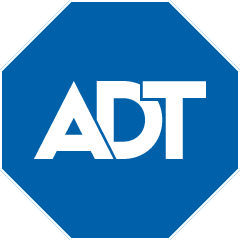
On April 25, ADT report their Q1 earnings results highlighting the following:
- Total revenue of $1.2 billion with end-of-period recurring monthly revenue (RMR) up 3% to $353 million ($4.2 billion on an annualized basis)
- Consumer and Small Business (CSB) revenue of $1.2 billion, up 5% and segment Adjusted EBITDA of $638 million, up 8%
- Strong customer retention with gross revenue attrition of 13.1%
- GAAP income from continuing operations of $92 million, or $0.10 per diluted share, up $218 millionAdjusted income from continuing operations of $151 million, or $0.16 per diluted share, up $56 million

On May 15, Seanergy announced its financial results for the first quarter ended March 31, 2024. The Company also declared a quarterly cash dividend of $0.025 per common share and a special cash dividend of $0.125 per common share for the first quarter of 2024.


On Jan. 19, Modular Medical announced the premarket submission of its MODD1 next-generation insulin pump to the FDA for 510(k) clearance. “This is an exciting milestone for the Company, as we seek to change the diabetes market. Almost 30 years after the introduction of the first insulin pump, more than three quarters of those who could benefit from wearing a pump do not wear one. It is our belief that our simplified design will encourage many “almost-pumpers” to adopt technology to aid in their diabetes management, without the complexity and expense required by many of the current solutions,” said Paul DiPerna, Chairman and CTO of Modular Medical.
Jeb Besser, CEO of Modular Medical, stated “Getting a person who requires daily insulin to adopt a pump instead of multiple daily injections can reduce healthcare costs and improve long-term patient outcomes. Pump adoption has been impeded by the ‘three-Cs:’ they are too complex, cumbersome and costly. The MODD1 was designed to be simple and affordable with an attractive form factor. We believe our two-part patch pump design, easy to learn interface and scalable manufacturing will all contribute to a differentiated and lower cost marketing approach. On behalf of the board of directors, I would like to thank the entire Modular Medical team, and all of our stakeholders and shareholders for their support in reaching this point. We expect to receive initial questions from the FDA during the quarter ending June 30, 2023, and we will provide updates, as appropriate. While working with the FDA to gain US clearance, our regulatory effort will now turn to preparing applications to obtain the UKCA mark to enable us to market the MODD1 in the United Kingdom. Operationally, we will move our pilot production line to our manufacturing partner to prepare for commercial launch.”
On Dec. 21, Modular Medical announced a collaboration agreement with Glooko, Inc., a global leader specializing in connected care and remote patient monitoring for diabetes. Integrating with Glooko will allow clinicians and patients to easily review insulin dosing data from the MODD1 pump, when commercially available. In addition, through Glooko’s platform, Dexcom CGMS users will be able to view their glucose levels in the same accessible format in conjunction with their pump data. Glooko’s platform has a broad installed base, which has been deployed in over 30 countries and 8,000 clinical locations. Jeb Besser, CEO of Modular Medical stated, “We are extremely pleased to add the Glooko technology platform to our diabetes care system making it even easier and more cost effective for us to provide this important capability to our clinical and patient base. Glooko’s mission to improve health outcomes of people with chronic conditions through its personalized, intelligent, connected care platform fits perfectly with our vision of providing an easy to use, affordable delivery technology to give more patients access to better care.”
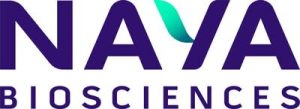
On Jan, 23, NAYA Biosciences Inc., a company which has recently signed a definitive merger agreement with INVO Bioscience (INVO, $.8501, -1.15%) to establish an expanded, publicly-traded life science company dedicated to increasing patient access to breakthrough treatments in oncology, regenerative medicine, and fertility, today announced that it has entered into a binding letter of intent to acquire Florida Biotechnologies, Inc. a gene therapy company focusing on the treatment of mitochondrial diseases.announced that it has entered into a binding letter of intent to acquire Florida Biotechnologies, Inc. a gene therapy company focusing on the treatment of mitochondrial diseases. “We are delighted to contribute to the emergence of a strong biotech ecosystem leveraging Florida’s academic medical excellence,” commented Florida Biotechnologies cofounder Dr. Peter Kash. “The NAYA leadership team brings an agile entrepreneurial platform, broad development and commercialization experience, and access to public capital, which will unlock the potential of our promising AAV gene therapy platform for mitochondrial genetic diseases. As it expands its clinical pipeline to additional regenerative medicine as well as oncology and fertility programs, NAYA is poised to build a world-class Miami-based biopharmaceutical company.” “We are impressed by the initial safety and efficacy of the AAV gene therapy developed by Florida Biotechnologies and the University of Miami for the treatment of LHON, a rare and debilitating genetic disease with no currently approved therapeutic regimen,” commented NAYA Chairman & CEO Dr. Daniel Teper. “NAYA is committed to accelerating clinical development and Early Patient Access to this breakthrough therapy, which has the potential to achieve curative results in patients with progressive vision loss and blindness.”
On May. 15, INVO Bioscience, Inc. announced financial results for the first quarter of 2024 and provided a business update. Revenue was $1,576,286, an increase of 353% compared to $348,025.
Videos
Post View Count : 501













